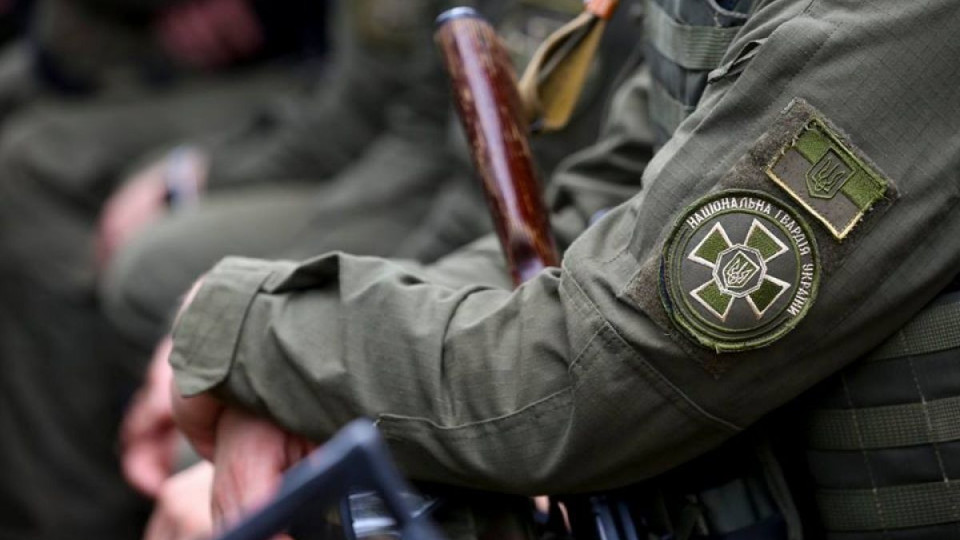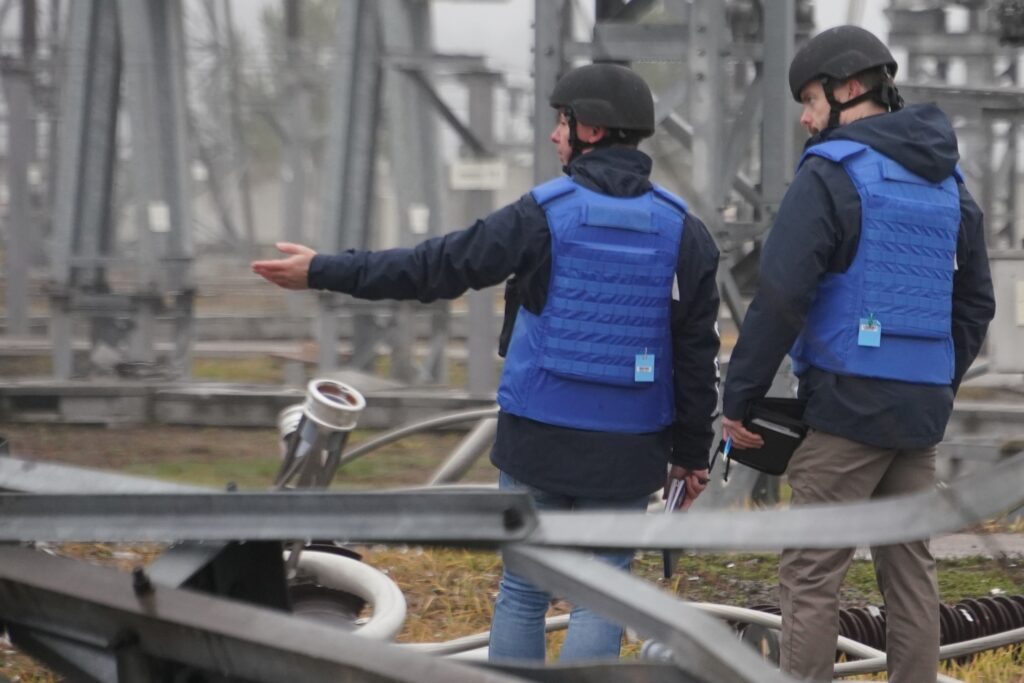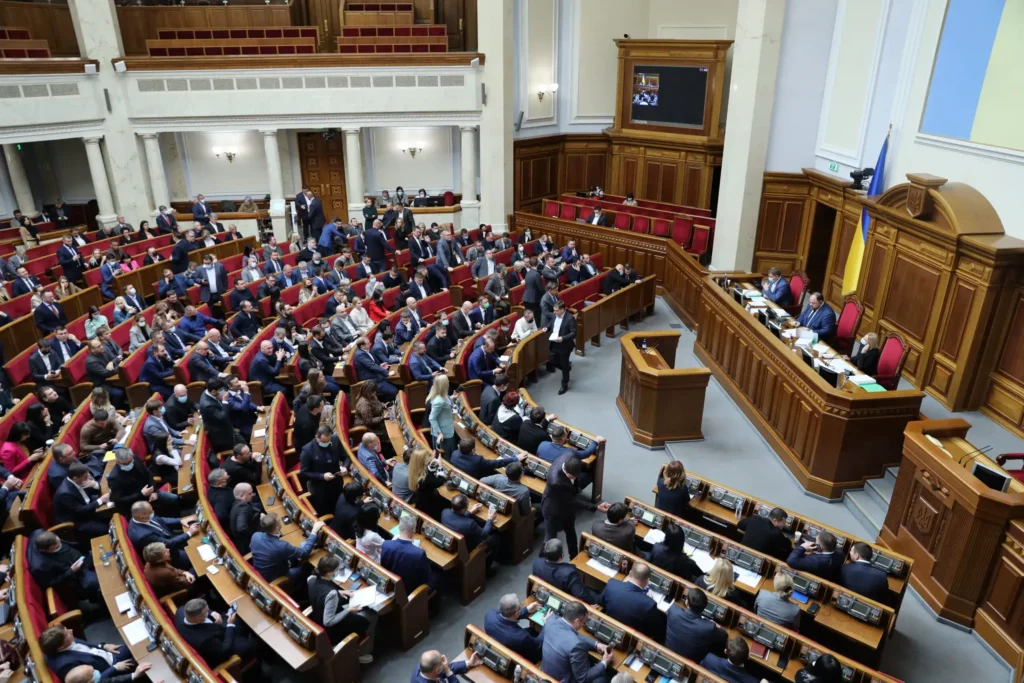National Guard to be given police functions: experts are outraged by changes to the law
27 March 2025 14:38
Activists raised the alarm. The Verkhovna Rada Committee on Law Enforcement approved for consideration in the second reading draft law No. 10311, which provides for amendments to the law “On the National Guard of Ukraine,” effectively legalizing the use of tear gas, drones and other special means against protesters. And if only batons and gas were enough, the Verkhovna Rada committee recommends that the parliament allow the National Guard to use firearms against citizens. What are the reasons for such changes?
As stated in Article 17 of this draft law, members of the National Guard have the right to use gas canisters, aerosols and other devices containing tear gas and irritant substances to
- repelling an attack on a serviceman and/or other persons;
- to stop mass disorders and group violations of public order;
- to stop illegal resistance;
- detention of a person who committed an offense and resisted or tried to escape;
- release of illegally seized buildings, structures, vehicles and land plots;
- preventing the commission of a crime;
- temporary distraction of the offender’s attention;
- application to persons under convoy in case of disobedience or attempted escape. It also includes the possibility of using firearms without prior warning – the first shot in the air.
This has already caused concern, in particular, at the Anti-Corruption Action Center (AntAC), which believes that the adoption of the draft law will give the National Guard broad powers to suppress mass protests. After all, the document states that firearms can be used to stop mass unrest without proper warning.
However, the law currently stipulates that the NGU military have the right to use firearms only in exceptional cases. For example, to repel an attack on protected facilities or when there is a threat of their seizure.
“In the new draft law, MPs grant the NGU the right to use firearms that have no clearly defined limits and can lead to excessive use of force and human rights violations. And this is in addition to the use of rubber and plastic batons, tear gas and stun guns,” the AntAC added.
The law also provides for marking protesters with paint and the use of drones, although their purpose is not explained in detail. According to the AntAC, the changes in the draft law No. 10311 may lead to a violation of fundamental rights and freedoms of citizens.
The powers of the National Guard should not be expanded
The Ministry of Internal Affairs was quick to assure that the powers of the National Guard are not expanded, but rather regulated. After all, the NGU already has the authority to use physical force and coercive means, including rubber batons, stun guns, and means of forcibly stopping vehicles.
The full list of these special means proposed in Part 2 of Article 17 of the draft law actually duplicates the current list used by the National Guard in accordance with the CMU Resolution No. 1024 of December 20, 2017 “On Approval of the List and Rules for the Use of Special Means by the National Guard in the Performance of Duty,” the Interior Ministry said.
The ministry added that the National Guard had been using coercive measures and stopping cars even before the initiated changes to the law on the National Guard.
“Servicemen of the National Guard of Ukraine had and have the right to use physical force, special means, weapons, armaments and military equipment to perform their tasks and functions, to stop and check cars,” the Interior Ministry explained.
NGU is already preparing for special operations
However, some MPs pointed out that the NGU is actively preparing to counter the protests, which is why this bill appeared, which was voted in the first reading in May 2024 and has been lying dormant until now, and is now being prepared for the second reading.
“It is true. Recently, non-public information has appeared that the National Guard is undergoing special training, they are being prepared to work against their own people,” said MP Sofia Fedyna.
She expressed hope that the National Guard will not do this, because they are also veterans, but society must give a worthy rebuff to this initiative.
And as military analyst Dmytro Snegirev said on TV, the National Police is already purchasing tear gas cylinders of increased capacity for 18.4 million hryvnias. This is not secret information, it is available on Prozorro and everyone can see it.
The National Guard will be transformed into a police force
As noted in the commentary
“The relevant law of the NGU does not clearly specify the use of special means, physical influence, and weapons. They were going to introduce this into the law. In fact, they were going to amend the law on the National Guard to regulate what the law on the National Police regulates, such as the use of special means. After all, they still use the Cabinet of Ministers’ resolution. That is, to stop referring to the Cabinet of Ministers’ resolution and to have their own law and rely on one law that gives them the right to use special means,” says Roman Likhachev.
According to Roman Likhachev, the goal of this draft law is to give the National Guard police powers. At the same time, the NGU is currently performing tasks that are almost equal to those of the Armed Forces.
That is, it will become unclear what the police do and should do, and what the National Guard, a paramilitary unit within the Ministry of Internal Affairs, does without clear distinctions.
Today it appears that the NGU is a symbiosis of the Armed Forces and the police.
Author: Alla Dunina









